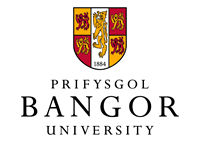About the Project
Applications are invited for a three-year Drapers’ research PhD studentship in insect ecology and genetics at the School of the Environment, Natural Resources & Geography and the School of Biological Science, Bangor University, UK. The studentship is funded by the Drapers’ Company (http://www.thedrapers.co.uk/). It will cover tuition fees and a tax-free stipend at the standard RCUK rate (£14,000 per year), along with relevant training and conference attendance. The studentship is available from the 1st October 2017 or as soon as possible thereafter.
Project outline:
Applicants should hold a first or upper second-class honours degree (or equivalent) in a biological science, or related degree. UK or EU citizenship are required. Please submit a CV (max 2 pages) together with a covering letter to Dr Paul Cross/Dr. Anita Malhotra at [Email Address Removed]/ [Email Address Removed] by Tuesday the 28th March 2017.
This Ph.D. studentship will characterise the biological and environmental drivers of honey-bee resilience with a view to identifying candidate bee reserves in Wales. The findings from this studentship will provide apiculturists and policy makers with a pathway to securing the future racial integrity of the Welsh honey bee. The project will be interdisciplinary, drawing on techniques from microbiology, genetics, ecology, epidemiology, geographical information systems and apiculture, and provide the apicultural sector with the necessary information to prioritise targeted bee-breeding programmes.
The study has three key objectives i) Identifying candidate reserves through morphometric and mitochondrial genetic typing of A. m. mellifera races, and characterising disease load using microbiological (fungal/bacterial) and genetic (viral) screens at a broad scale across Wales. ii) Based on the initial results, more detailed sub-regional determination of racial traits based on microsatellite or SNP markers, and an array of resilience markers including disease load, over-wintering success and defensive behaviour. iii) Digital mapping of racial and resilience markers and their site-specific environmental constraints (eg. forage resources), and ranking of short-listed bee protection reserves.
Schools background:
The School of the Environment, Natural Resources & Geography was ranked 4th amongst all UK universities in agriculture and environmental sciences with 80% of the research outputs considered internationally excellent. The School of Biological Sciences supports a vigorous research base in a number of areas, including molecular ecology, fisheries genetics, ancient DNA, evolutionary and conservation biology, and animal responses to stress and applied microbiology.
The project will build on relevant existing and forthcoming projects on honey bee morphometries and disease. We have state-of-the art facilities for field-based training and experiments (e.g. molecular laboratory facilities, apiaries, habitat mapping data and measurement resources).
Schools background:
The School of the Environment, Natural Resources & Geography was ranked 4th amongst all UK universities in agriculture and environmental sciences with 80% of the research outputs considered internationally excellent. The School of Biological Sciences supports a vigorous research base in a number of areas, including molecular ecology, fisheries genetics, ancient DNA, evolutionary and conservation biology, and animal responses to stress and applied microbiology.
The project will build on relevant existing and forthcoming projects on honey bee morphometries and disease. We have state-of-the art facilities for field-based training and experiments (e.g. molecular laboratory facilities, apiaries, habitat mapping data and measurement resources).
Funding Notes
The studentship is funded by the Drapers’ Company (http://www.thedrapers.co.uk/). It will cover tuition fees and a tax-free stipend at the standard RCUK rate (£14,000 per year), along with relevant training and conference attendance. The studentship is available from the 1st October 2017 or as soon as possible thereafter.

 Continue with Facebook
Continue with Facebook

